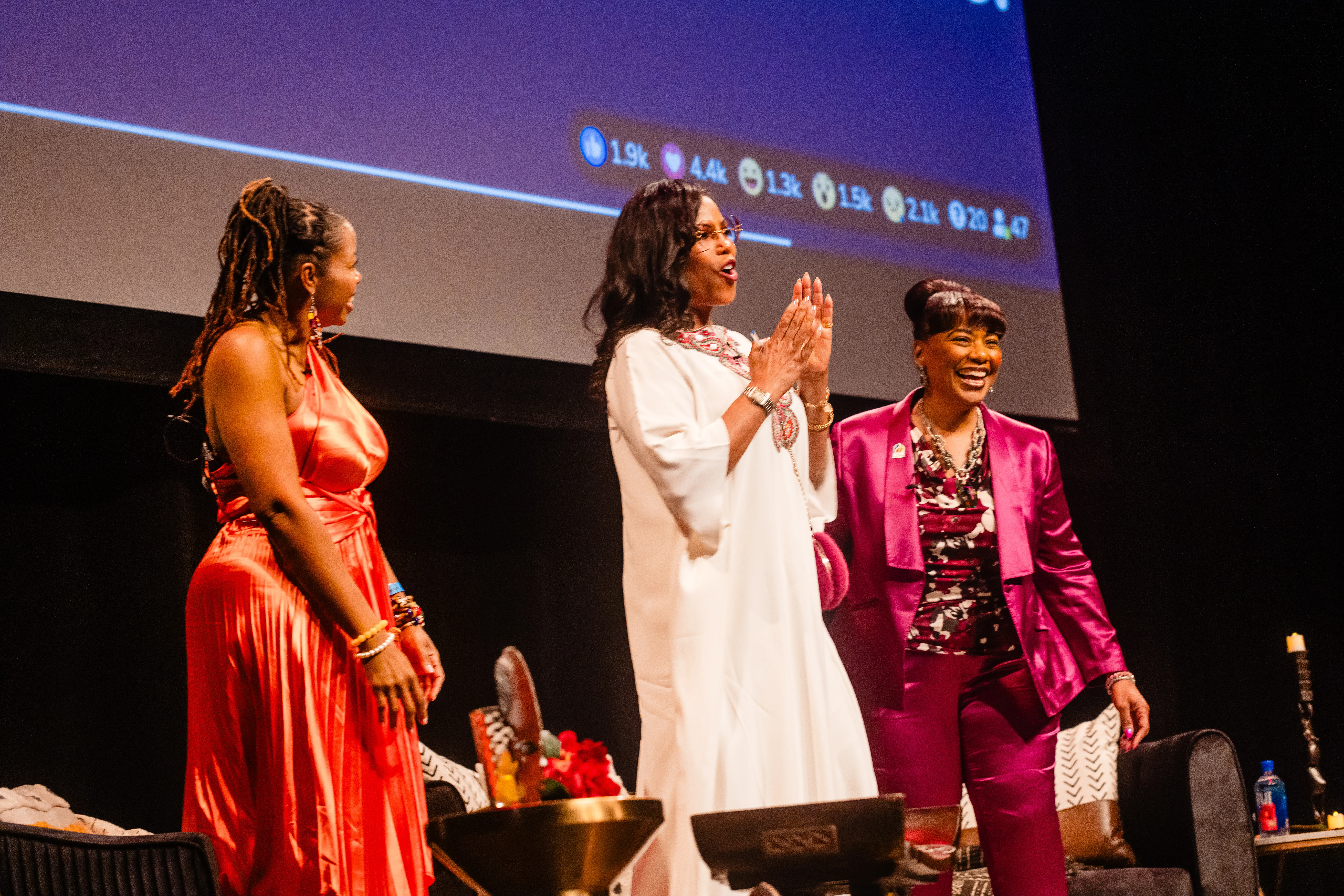Beyond Legacy
Daughters of Civil Rights legends speak in honor of Juneteenth.

Denise TrimbleSmith, Ilyasah Shabazz and Bernice King
Veronica Rodriguez
The civil rights icon Martin Luther King Jr. brought his nonviolent struggle for integration to Tucson twice, in 1959 and 1962. Both times, he spoke at the University of Arizona auditorium, today known as Centennial Hall. His first visit, notes the Arizona Daily Star, came exactly one year into his recovery from a stabbing at a book signing in Harlem, his second almost 100 years after the handing down of the Emancipation Proclamation — and a year before the birth of his second daughter and youngest child, Bernice.
Martin Luther King’s life was cut short in 1968, during a visit to Memphis to march with Black sanitation workers. But 61 years after his second campus address — and on the university’s inaugural observance of Juneteenth, no less — Bernice King graced the Centennial stage, spreading her father’s good word beside Ilyasah Shabazz, daughter of Malcolm X, in a fireside chat marked by wisdom and humility.
During the talk, titled “Beyond Legacy: The Next Generation of Justice and Action,” Bernice King spoke of the “righteous indignation” that she and Shabazz have carried since their fathers’ assassinations, calling such anger productive in the push for societal change. A reverend who entered the ministry at the age of 17, King also spoke about following one’s “assignment from the universe” — hers being, in part, to continue the eff orts of her father and her mother, Coretta Scott King.
Shabazz, a writer and professor, contended meanwhile that “you can’t have peace without freedom,” calling the two “interchangeable,” and seconded Bernice King’s plea that history not drive a divide between their fathers, whose strategies in pursuit of racial justice often diff ered. Her presence beside King reinforced the sentiment.
As the women stood for photographs with moderator Denise TrimbleSmith, who when young imagined them as her best friends, the 2,000-plus attendees — Black, white and brown, old and young — rose with them.
